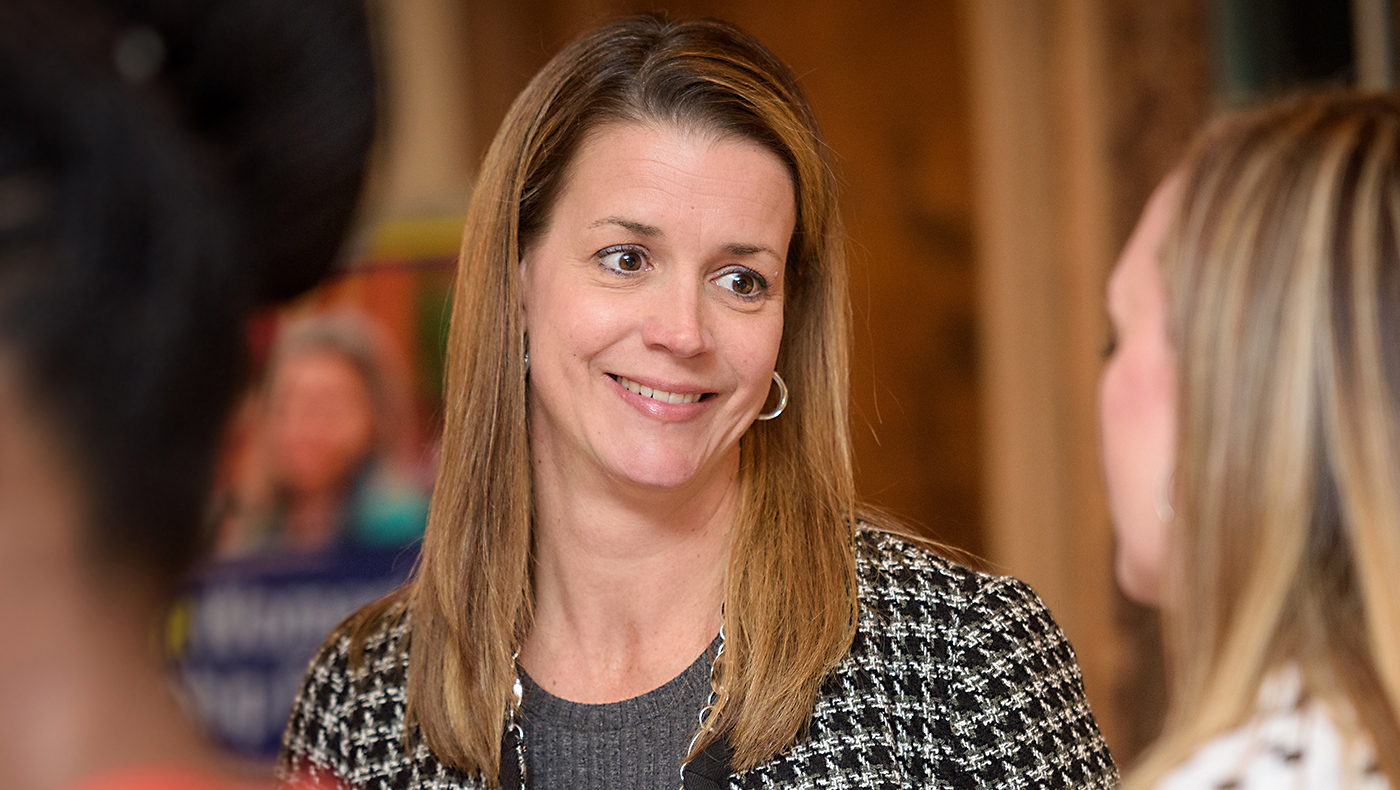In honor of International Women’s Day and Women’s History Month, this guest post from the Lerner College’s Amanda Bullough, professor of management, is a message to her children and students on the future of women’s leadership and gender equity. Bullough is the co-founder of the Lerner Women’s Leadership Initiative along with management professor Wendy K. Smith.
This post originally appeared in LinkedIn:
I am a professor of management, global leadership, and entrepreneurship. I am an academic who has for years studied, and worked to support and advance, women’s leadership and entrepreneurship. I am also a mother of three young children between the ages of four and seven―a girl and two boys. I am also old enough to be a mother to many of the students in my classrooms. I write this to all of you. Today seemed like a good time to document why the advancement of women’s careers is so important to me.
The modern American workplace is different for women and men now from what it was for me when I was a child, and from what it was for my parents and grandparents. It is feasible that it will be quite different when my children and students are grown. We have come a long way as a society, but I still worry about the messaging you receive. Even when you, my children, play, I hear you speak about toys and shows that are “for boys” or “for girls.” There is more and more programming on television with co-gender teams, and some female lead characters. But, by and large, the programming that you consume still shows boys in the lead role disproportionately to girls, and this is even more stark in major blockbuster movies. We had a snow day yesterday and, while we were all home together, I helped you look for a movie to watch. Among the new releases this winter, including Ferdinand, Coco, and others―even Woody Woodpecker that you’ve been watching lately― the major stars and co-stars of the movies are, more often than not, male. And, there seems to still be an impression that if there’s a girl lead character, it’s a movie “for girls,” and all three of you see it that way. These are notions and ideas that I struggle with, as a mother and as a proponent of women’s leadership and equity in opportunity for everyone.
To my students, as many of you know, I am co-directing the Women’s Leadership Initiative for our college and across the University. Women’s issues are largely viewed as work that is important to women. No minority group can make progress all by itself. We need men involved in the conversations, celebrations, and in the opportunities alongside women. As we simply look around the University, we see fairly equal representation of both genders, in the classroom and in the workforce, although this varies widely by major. Men and women each make up about half of the workforce, although there are still gender dominated industries, like nursing (female) and science/technology (male). Where the inequity becomes more visible and even striking is as you move up levels of management and leadership. The higher you go in almost any organization’s hierarchy, the fewer and fewer women you are likely to find. The research is plentiful and shows that the reasons for this are multifaceted and complex―bias, discrimination, harassment, roles modes and mentoring, work-life balance, and so on. Even in a female-dominated industry like grade school education, you find female teachers in the vast majority of classrooms, and men disproportionately in principal and school board leadership roles.
The reason we have “equity” in our mission statement for the Women’s Leadership Initiative, instead of “equality”― “the Women’s Leadership Initiative (WLI) at Lerner is the preeminent driver of learning that propels transformational women leaders and advances gender equity in the workplace” ―is that we want to promote resources and education to advance equity in opportunity. Equity is giving everyone what they need to be successful and leveling the playing field. Equality is treating everyone the same and giving everyone the same resources, regardless of privilege or minority status.
In the United States where women still only represent 6.4% of CEO positions of our largest corporations, growth has been quite slow, although at least consistent. I do not expect the changes I wish to see to be rapid, because I do believe in the reality that things take time and sometimes generations. As long as I see progress, even if the line is not perfectly linear and there are setbacks, I will continue to be motivated and I will continue to push and support. There seems to be a wave of interest in opportunity and fairness across all genders. I have faith that humanity will continue to make progress.
My vision for the world to come is that you will not only grow up in a world where equity in opportunity is normalized, but that you will contribute in a positive way to your own lives and careers, and to the fairness and respect of those around you. What I want for you as you grow, is a world where little girls and boys see women in influential and authoritative positions as normal. A world where girls feel equal and safe in all disciplines and job junctions. A world where girls raise their hands for leadership roles as much as boys do. A world where none of our subconscious see a certain type of person when we picture leadership, or turn our attention away when we hear a certain type of voice. A world where women are not hushed or silenced. A world where women occupy numerous seats at the most important decision-making tables.
My job as a mother and as an educator is to help those I teach to become productive, happy and contributing members of society and the workforce, and I do it with love and dedication.




